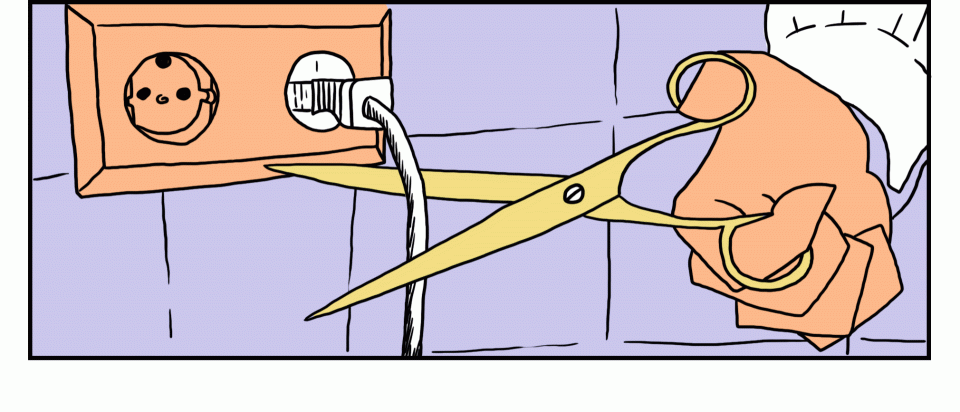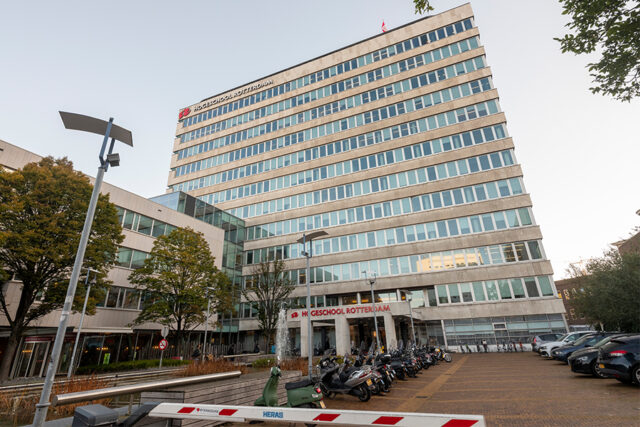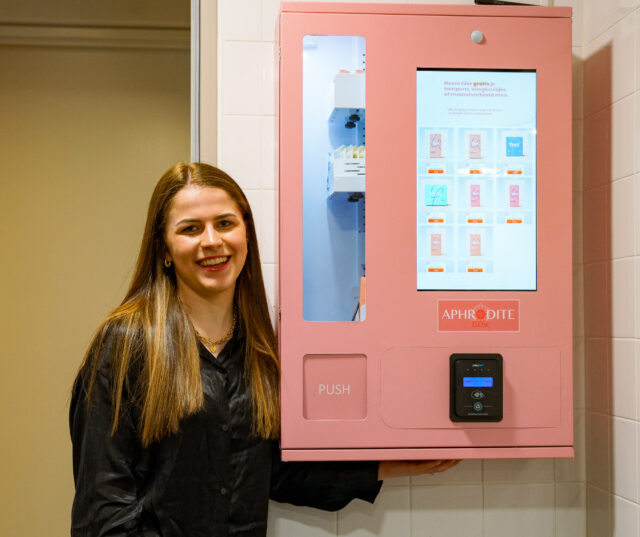How did the INEPAD project go so wrong?
Gepubliceerd: 24 April 2018 • Leestijd: 10 minuten en 35 seconden • English Dit artikel is meer dan een jaar oud.The Rotterdam University of Applied Sciences (Hogeschool Rotterdam) suffered embarrassment after an online foreign adventure with the RBS Consultancy and Entrepreneurship master programme got out of hand. The courses provided to students in Brazil were discontinued after a year. The damage: €350,000, and dozens of frustrated students. What exactly happened? How did this experiment with online education get so out of hand?

The story starts in 2014. At this time, board chairman Ron Bormans tasked the director of the Rotterdam Business School (RBS) Cees van der Kraan with rendering the loss-making RBS master programmes profitable within three years, otherwise the Board would shut down the courses.
Subsequently, a plan originated at RBS to start offering the NVAO accredited Consultancy and Entrepreneurship master degree (MCE) as an online programme.
In order to attract more foreign students to this programme, RBS entered into a collaboration with INEPAD, a Brazilian private educational organisation. INEPAD is based in Ribeirão Preto, which is about the size of Rotterdam, about 300 kilometres inland from São Paulo. Contacts were established easily, as the institute was already known to one of the RBS teachers.
‘European education, wherever you are!’
Together, RBS and INEPAD set up an online programme, promoted with the slogan ‘European education, wherever you are!’ and 65 students started taking lectures during the 2015-2016 academic year: 64 Brazilian students and one Iranian student. The students contacted by Profielen were all satisfied with the education that was offered and extremely disappointed when the plug was pulled – very unexpectedly for them.
However, the RBS Exam Board (responsible for the quality of diplomas) felt that they had insufficient insight into what was happening on the other side of the world. They were not able to properly determine the quality of assessment. This is why the committee raised the alarm, initially making their concerns known to the RBS management team and later to the Executive Board. The board heeded the warning from the Exam Board to such an extent that it decided, in September 2016, to discontinue the programme. Costs: €350,000. This includes €250,000 for the duped students; more on this in a separate article. How did this experiment with online education get so out of hand? A reconstruction.
The human factor: abuse of trust and power
After board chairman Bormans had tasked RBS director Van der Kraan with restoring financial health to the private RBS master degrees, Van der Kraan proposed a plan to him in January 2015. The plan involved experimenting with online education and, to achieve this, to initiate a collaboration with the INEPAD organisation in Brazil.
Bormans gave permission to the RBS director and provided guidelines on legitimacy and the teaching language. The first refers to the Education and Examination Regulations (EER), the latter refers to the fact that programme had to be offered in English. Bormans ‘trusted the two would be carefully observed’.
This is evident from the conclusions and recommendations in a report on the decision-making surrounding ‘INEPAD’, a copy of which has been provided to Profielen. This report was drawn up in June 2017 by the university of applied sciences’ risk manager, Alexander van den Assum, and the compliance officer, Herman Veenema.
Abuse
One of the criticisms aimed at Van der Kraan by the authors of the report is that he signed a contract with INEPAD, despite a negative opinion from the university of applied sciences’ lawyers. He did this when INEPAD still had not transferred the agreed share of the tuition fees to the university of applied sciences, nine months after the start of the programme. Internal legislation demonstrates that Van der Kraan was not authorised to do this: These types of contracts must be signed by the board. Van den Assum and Veenema qualify the signature as abuse. ‘This signature was in conflict with the advice given by the lawyers and the instruction by Bormans on acting lawfully. The deliberate nature of these actions qualify this as abuse.’
In the contract, Van der Kraan agreed conditions that were very different from the appealing financial results he initially outlined in a business plan: Of the €22,000 in tuition fees per student (for a 2-year course programme), one-third was to be paid to the university of applied sciences. Also, the revenue would decrease as more students joined. (INEPAD is not responding to questions from Profielen about the distribution of the tuition fees.)
‘The director who overstepped the boundaries of his powers’
Furthermore, the tests for the online master degree were in Portuguese, against the explicit wishes of the board to maintain English as the working language. ‘This illustrates the purposeful disregard for the Executive Board’s instructions’, says Bormans.
Van den Assum and Veenema conclude in their report that ‘the director overstepped the boundaries of his powers and took on responsibilities that were not his to take, and did not eschew intimidation and autonomous conduct. The erstwhile RBS director acted incorrectly and made improper use of the trust bestowed on him.’ The conclusions of the report do not clarify why the reporters arrive at the conclusions on intimidating conduct.
‘I would say this is a clear case of slander’
In a written response, former director Cees van der Kraan, dismissed in 2016 for fraud, actually denies that INEPAD was his project. According to him, the project was set up by a teacher and a former course manager for the master programmes. ‘Other than telling them I thought it was a nice idea, I have had no involvement.’ He says about the report: ‘I would say this is a clear case of slander, defamation and, “well, he’s left now anyway”.’ A series of subsequent questions is ‘too crazy to justify with a response’, according to him. He is still willing to say that he has never been to Brazil and that the concerns of the Exam Board were taken up by his co-director Mira Ruiken.
Mira Ruiken does not wish to be interviewed for Profielen. However, she does inform the spokesperson for the university of applied sciences that Van der Kraan’s depiction of the facts is not correct. ‘This is not what I am hearing from RBS employees and the factual analysis by Assum and Veenema contradicts it. Also, the image Van der Kraan portrays of INEPAD did in no way emerge during evaluation meetings.’
Educational programme design flaw: Exam Board was not involved
What is maybe even more significant than the fact that the director signed a contract he was not authorised to sign, is the fact that the RBS Exam Board was ‘neither involved nor sought out during the setting up and implementation of the programme and its assessments’. This is according to Jan de Waard, chairman of the RBS Exam Board, in a written response.
‘The Exam Board learned before the start of the online programme, through the grapevine, that an online programme was pretty much ready to go’, he writes. As a result, a discussion about the risks of such an undertaking took place between the chairman of the Exam Board, the external member of the Exam Board, who at that time was the course manager for the RBS masters programmes.
Inadequate assessment
Between September 2015 and the end of May 2016, the Exam Board regularly requested that the RBS Board look into the inadequate assessments. At the end of May, the Exam Board informed the Board that ‘with regard to the assurance of assessment and examination quality for the programme in Brazil, little progress had been achieved, even though the first year of enrolment had almost finished by then.’
The teaching language was one of the issues. By their own account, the Exam Board were not able to check the quality of the Portuguese-language exams. ‘This was a source of worry’, says chairman De Waard.
Doubts about exit qualifications
Van den Assum and Veenema write: ‘The assessment of the quality of exams had moved more or less outside the reach of the university of applied sciences.’
The ‘quality requirements were not met, at least in case of accreditation standards 3 and 4 (for assessments and maintaining the required level for universities of applied science, red.)’, writes De Waard in his first e-mail. Whether the exams for the online version of the Consultancy and Entrepreneurship master degree differed from those for the programme as offered at the Rotterdam University of Applied Sciences, is not clear to Profielen. In the Dutch setting, the assessment quality assurance is deemed to be sufficient.
It has not become clear to Profielen where the other issues with the quality of assessment and examination lie. The Exam Board did not respond to follow-up questions and referred to the Executive Board after two rounds of written questions. The spokesperson for the university of applied sciences then repeated that the Exam Board was not able to guarantee the quality of assessment. She added that the committee had ‘identified several operational shortcomings that were cause to doubt whether the intended exit qualifications were in fact being met’. To the question asking for clarification on the shortcomings, the spokesperson wrote that the ‘Exam Board would like to refer to the responses provided’.
The RBS Exam Board had no doubts about the quality of the examiners, says De Waard. The examiners were hired in Brazil by INEPAD for the assessment of the students’ Portuguese-language exams. ‘One of them had previously completed a master programme at RBS’, writes the Exam Board.
The situation sets off major alarm bells
All the same, the chairman of the Exam Board notified the RBS Board halfway through June 2016 that the Exam Board was considering informing the Executive Board about the inadequate assessments. This action was taken on 22 June. The situation set off ‘major alarm bells’ for board chairman Bormans.
Bormans says the fact that the Exam Board was not involved was a ‘design flaw’. ‘What went wrong is that the Exam Board could not adequately observe what was happening there. The RBS management should have known that beforehand. If there is a situation where you cannot guarantee the quality, you should call it off. Full stop. It was assumed, in the boardroom and by staff involved, that things would be organised in a manner that would allow the Exam Board to ascertain the ins and outs. The fact that the RBS management acted the way they did was a design flaw. From the perspective of the space that RBS had been allowed – the Education and Examination Regulations – it should not have been designed this way.’
Compartmentalisation
Director Van der Kraan did not operate in a vacuum. At RBS, a team of lecturers and one associate professor were involved, led by a course manager that was in charge of the masters programmes. Within CcS, AIC and OeO, people knew that RBS was pursuing overseas activities. One member of the centre of international affairs (coia) travelled to INEPAD in Brazil. ‘And yet, none of the people involved showed an awareness of the nature of the activities and the potential risks involved’, conclude Van den Assum and Veenema. Nobody took the initiative for a project organisation with members from the services and RBS. ‘Compartmentalisation’ is the word used by Veenema and Van den Assum.
Just about every possible control mechanism within the university of applied sciences has failed according to Veenema and Van den Assum. Of all the people that were aware of the activities in Brazil, only the Exam Board raised the alarm after more than a year.
Bureaucratic actions were wide of the mark
‘The bureaucratic actions were wide of the mark’, add Van den Assum and Veenema. ‘The written confirmation of agreements was often absent or inaccurate. The same was true for written responses to letters or e-mails, the procedure for unfulfilled actions, (timely) documentation of decisions, and archiving of letters and memos.’ Board decisions were missing.
‘That’s correct’, says Bormans. ‘The precious bureaucratic process of proper documentation, adequate recording it should have been better. This is something we all have to take to heart, but the buck stops with me. It should have been done better, pure and simple.’
Inadequate administrative supervision
In addition, according to Van den Assum and Veenema ‘the functioning of the checks and balances of the university of applied sciences, whereby the Executive Board is the first accountable party in line, was falling short for quite a long period of time (from the start of 2015 until June 2016)’. ‘Those checks and balances should ensure that the right things are done, and that those things are also done properly, that risks are identified and being discussed, and that careful decision-making is possible.’
The inadequacies in the above meant that there ‘was no supervision of the financial obligations entered into and that no proof was found of any focus by the administration on the quality of its education’.
In an interview last November, board chairman Bormans told Profielen that he had in fact discussed the plans for the online master programme in Brazil ‘very, very intensively’ with Van der Kraan. ‘During bilateral meetings and at other occasions. But that was badly documented at that time.’
In a response to this article, Bormans stresses that he did, in fact, supervise properly. He gave ‘clear guidelines’ to the ex-director of RBS. ‘Any system will fail if the main players stray outside the framework of what is permissible, or even sign contracts when they are not authorised to do so.’
It is unclear what role the second RBS director Mira Ruiken played in all this. According to Van den Assum and Veenema, Ruiken states ‘not to have been au fait with the developments, although quality assurance was part of her portfolio’. In its response to Profielen, the Exam Board writes that it informed not only Van der Kraan, but also Ruiken about its concerns regarding assessment in Brazil.
Director dismissed for fraud, not related to INEPAD
Three months after the plug was pulled on the Brazilian programme, director Van der Kraan was dismissed. He was accused of misappropriation of more than one hundred thousand euros, of having paid 5,000 euros in sponsor money to a volleyball club he was a board member of, and of having incurred approximately 800 euros of private expenses on his business credit card. His employment contract was dissolved without compensation by a judge in December 2016. The judge stated that this was a case of seriously culpable conduct. Six months later, he was convicted to 12 months of imprisonment by a criminal judge. He appealed this decision. This appeal is yet to be heard.
The problems involving ‘INEPAD’ did not play a role in the dismissal case, as no evidence was found of criminal offences in this case, says Board chairman Ron Bormans. He did initiate an investigation into whether fraud occurred during the organisation of the online master programme, but no indications have been found to prove this.
As a result, the university of applied sciences sustained a considerable dent. As well as 65 frustrated students and many man-hours lost to a thwarted programme, the financial damage amounts to at least 350,000 euros. According to the investigation report and the board, this damage is not the result of fraud or other criminal offences, but of a headstrong director, a design flaw in the programme, failing bureaucracy and inadequate administrative supervision. So that is something, at least.
Text: Dorine van Namen & Olmo Linthorst
Illustrations: Demian Janssen
Cees van der Kraan first reacted to a request for his reaction in March 2018. A response from Ron Bormans of the Executive Board can be found here.









Beautiful story
In addition to the corruption that runs here in Brazil, we must also deal with corruption in the European court.
I wanted to know who took care of my frustration and that of my colleagues during those years?
Think of a difficult situation that we lived, were so many dreams thrown in the trash.
Ah, but we’ve returned the money … the money they gave us back is about our one-month salary, after graduation!
See how many opportunities we lost trusting in this master’s degree, there were better and more reliable masters in our country, but we bought the idea of a master’s degree that was said to be European, but it turned out to be any of Brazil, I mean, in Brazil although it is one of inferior quality fulfill what you have contracted with us